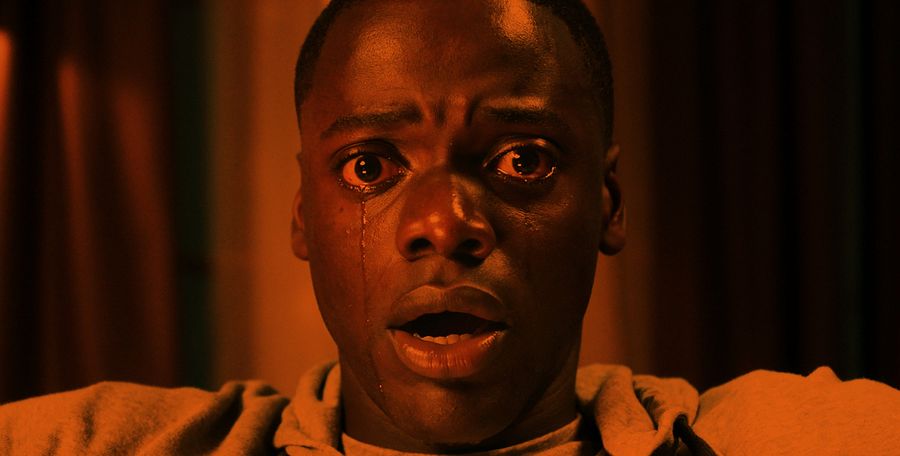The rise of the high-concept horror
In genre cinema, horror is the one that benefits the most from high-concept ideas.
The next is comedy, and the link between horror and comedy is well-documented. John Landis, the director of 'An American Werewolf in London' (itself a high-concept horror / comedy), believed it was due to the fact that horrors and comedies rely on people's deepest instinct to either laugh or be terrified. It's a natural reaction, and trying to generate that often requires inventive ways. That's where the high-concept horror comes in.
The definition of a high-concept horror is pretty broad, but unmistakable when you see it. There's been plenty of examples through the years, but it's only recently that they've begun to take on a new life. Movies like 'Get Out', 'It Follows', 'Final Destination' and upcoming horror movie 'Countdown' all follow the same blueprint of combining a high-concept idea with straight-edge horror for intriguing results.
What makes a high-concept horror is, essentially, a bats*it idea that can be easily explained in just a few short sentences. Take new horror 'Countdown', which focuses on app that tells you exactly when you’re going to die. If you try and cheat your fate, a chilling demon makes sure you don’t succeed. Most people have a phone, most people are to some degree interested in their own mortality. It’s instantly relatable, intriguing and easy to get.
In 'It Follows', the monster of the movie can look like anyone, and it can only be seen by the person it hunts. If the hunted has sex with someone, the monster will follow that person until it kills them, and then returns to the original person. 'Get Out', meanwhile, is about a black man who visits his white girlfriend's parents, only to realise that they intend to harvest his body and use it for a bizarre mind-transfer procedure. 'Final Destination' was about a group of people who are killed in bizarre accidents, but are actually being stalked by death itself after they escaped it by a premonition.

Countdown sees a young nurse download an app that claims to know when you will die, and gives her three days to live. Credit: STX Entertainment
The mark of a good high-concept horror is that while the idea is sound and is enforced throughout the movie, it's really just a launchpad to talk about something else. You can ground it in something easy to understand, but it's a way of exploring broader themes than simply scaring people. 'It Follows', when you strip away the high-concept layer, is a movie about the fear of intimacy, with the monster itself being an allegory for sexually-transmitted diseases. 'Get Out' was about ingrained racism in America.
It doesn't always have to be a launchpad, however. 'Final Destination', for example, didn't have the same kind of deeper layer that 'Get Out' or 'It Follows'. In fact, it began life as a spec script for an episode of 'The X-Files' and grew from there. Sometimes, the high-concept idea can be used for fun in the same way that it can be used to slip in social commentary. 'Countdown' is a good example of this, mixing high-concept horror with a certain amount of gory thrills to it.

Get Out would go on to win an Oscar for Best Original Screenplay, and was nominated for Best Picture, Best Director and Best Actor for Daniel Kaluuya. Credit: Universal
Horror, by its very nature, is a prolific genre and when you look at the numbers, it's getting bigger with each passing year. According to IMDb, 229 horrors were released in 1990. By 2000, that number had increased to 358. Jump forward just six years later, and the number stands at 874. Last year, 1,378 horror movies were produced. When you look at that sheer volume, it's no wonder that directors increasingly have to go for smarter ideas with more original concepts.
Audiences too have become inured to flat, straightforward horrors. Even the ones that take up the tropes of the genre, like 'Scream', have to put a high-concept spin on them. More and more, horror directors have to continuously reinvent the concept in order to satisfy audiences and break through the noise. It's not enough simply to scare people, it's more that the brain has to be engaged in some way in order to get through to them. After all, imagination and horror go hand in hand.
Audiences are far more capable of scaring themselves that any director can, and when you engage the brain with high-concept ideas, it just adds to that.
'Countdown' stars Netflix's 'You' breakout Elizabeth Lail as a young nurse who downloads an app that tells her she has three days to live. Like anyone would, she ignores it but as things progress, there might be more to it than she bargained for and the countdown might actually be real. Written and directed by Justin Dec, and co-starring Jordan Calloway and Peter Facinelli, 'Countdown' is a high-concept tech-horror.
'Countdown' arrives in Irish cinemas on October 25th. Find tickets here.

